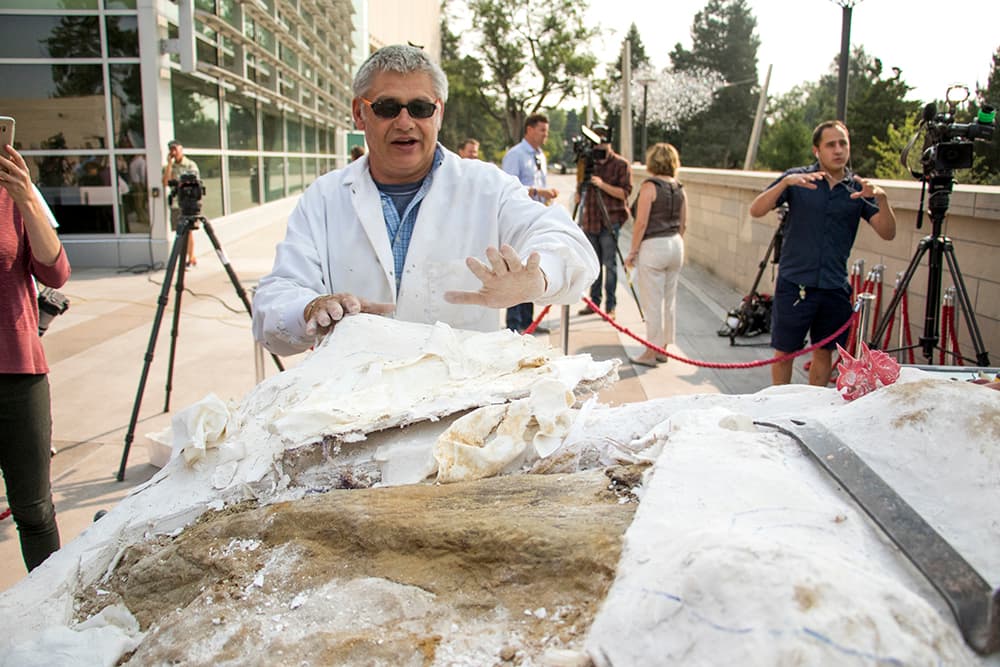
Denver was shaken earlier this year by the news that Michael Getty, a revered local paleontologist, had collapsed while excavating a triceratops in Thornton and later died.
News of the death traveled quickly, in part because of Getty's sterling reputation in his field and in part because of online speculation that his death was somehow connected to the excavation.
However, an autopsy report released today confirms that Getty's death at age 50 had no apparent connection to his work. It was the result of a heart attack, according to the Adams & Broomfield Counties Office of the Coroner.
Getty was working at the fossil site on Sept. 11 of this year when he told coworkers that he didn't feel well and then lost consciousness. He was unresponsive when emergency responders arrived, and an autopsy later found that he had suffered a heart attack due to thrombosis.
Hypertension and hyperlipidemia also contributed to Getty's death, according to the coroner's report. Both are common conditions that can cause heart problems. No other causes of death or contributing factors were listed.
Getty was chief fossil preparator for the Denver Museum of Nature and Science.
He grew up in Western Canada and loved paleontology from an early age, according to a staff biography. He worked at dinosaur sites across the American West and was described as one “of the great quarrymen of his time.”
In Denver, he managed “one of the largest field teams in the country in their ambitious pursuit to understand ancient life through fossils,” the biography stated.
The species Utahceratops gettyi was named after him.










